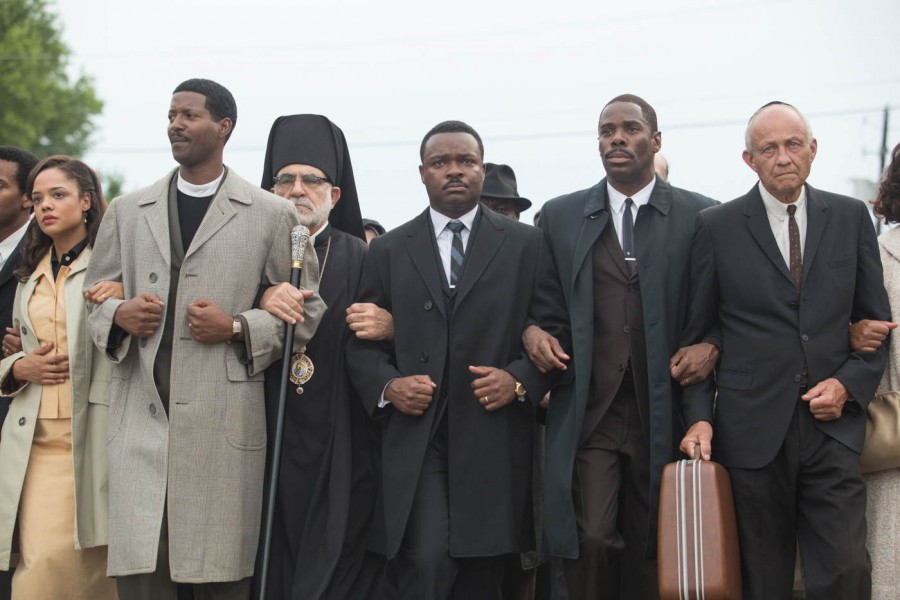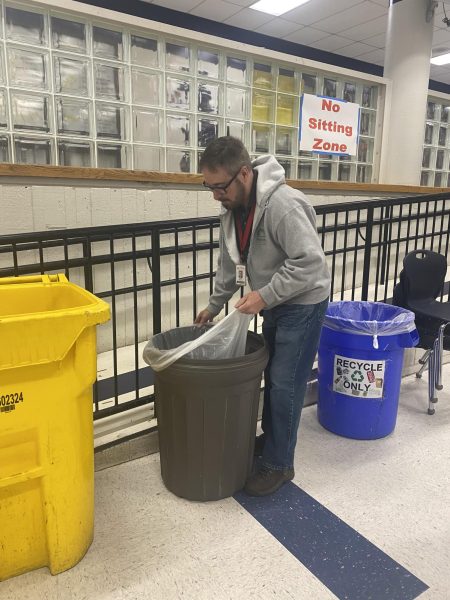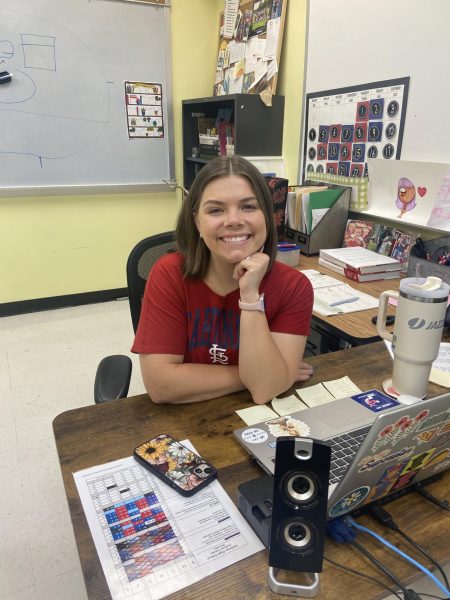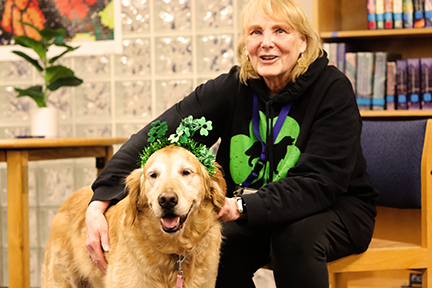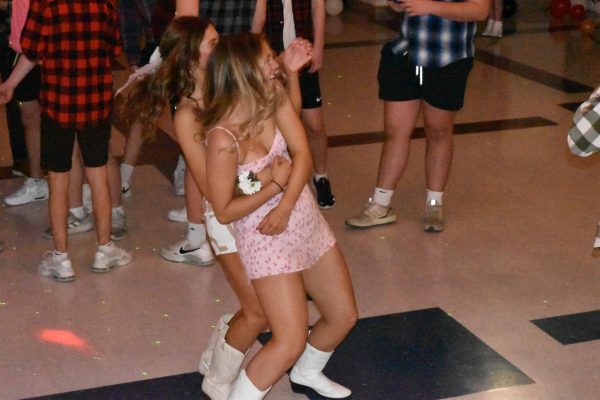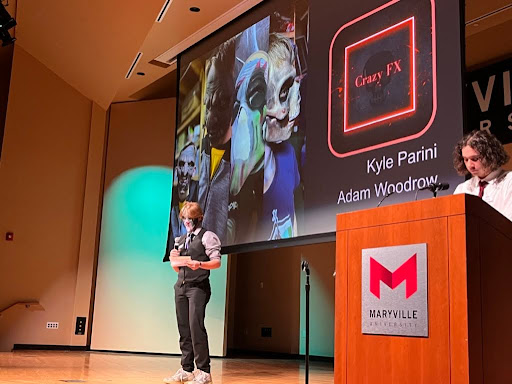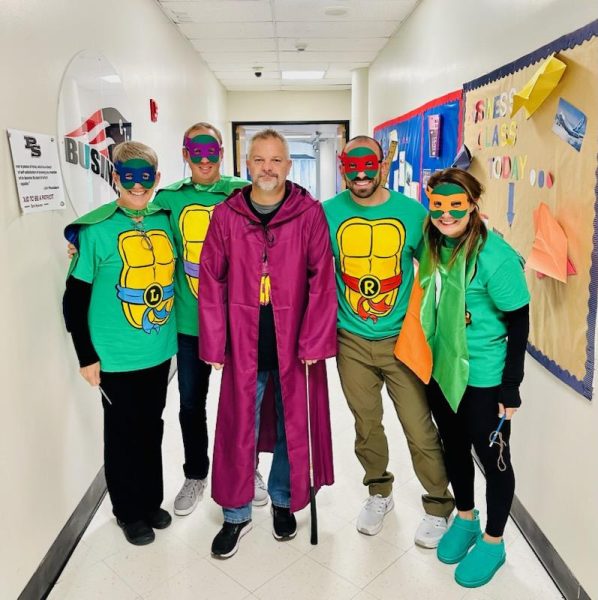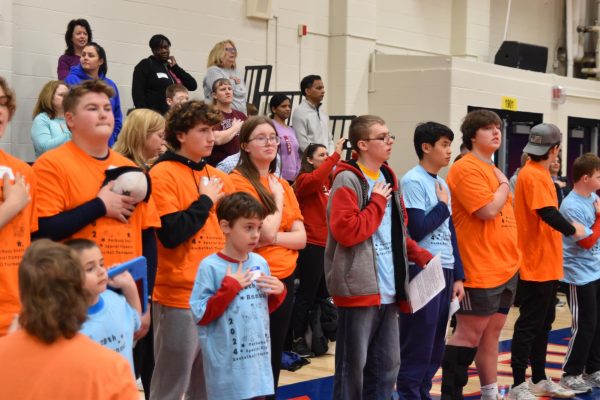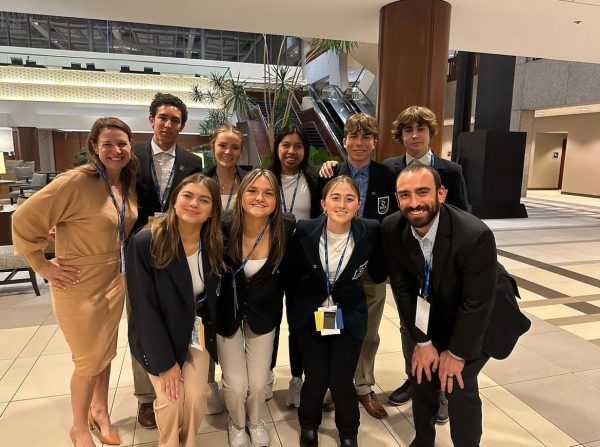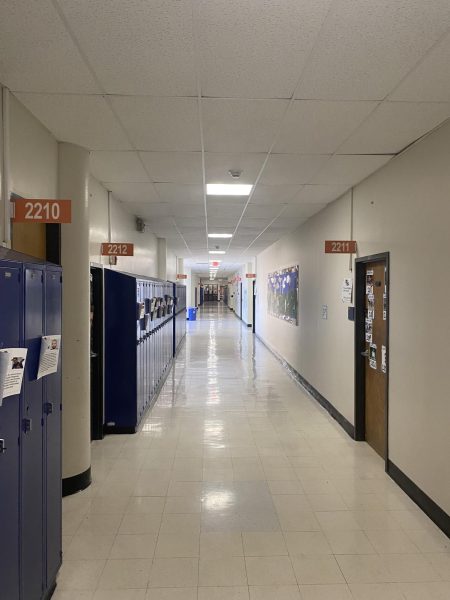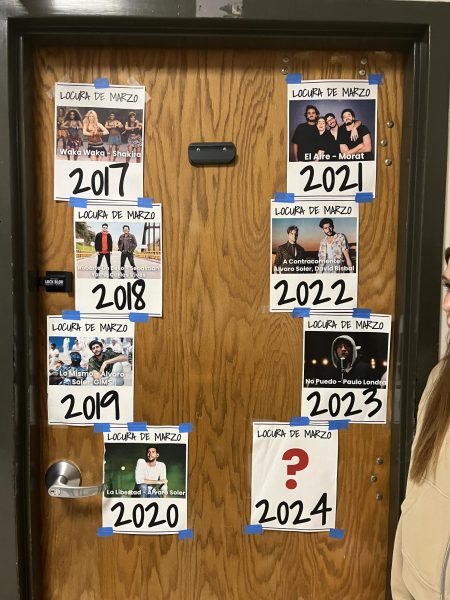My trip to see Selma
More than a historical biopic
I work with a man named Todd Ollendorff and he recently invited me to see Selma with his parents. He explained to me that he was very excited to see this movie because of a girlfriend of his, nearly 8 years ago, who worked in the film industry.
“She brought hundreds of scripts home, and I read hundreds of scripts all the time. She worked for a large agency that represents all the big producers, directors, and film writers. So all these scripts would come home and I would read them. They were easy, 100 pages, and if I liked them I’d give them to her to read and to pass on. I read Selma and I loved it, and I gave it to her, and she loved it, and it eventually got to Will Smith after she passed it on,” Ollendorf said.
It was interesting to hear that Todd had been waiting for this movie to come out of Will Smith’s production company, Plan B Productions. He then mentioned something that peaked my interest. While visiting his father, Frank, and step-mother, Jane, he mentioned some of the things he had been reading.
“I said ‘I just read this great script about Selma,’ and she said ‘I was there!’ It was just a bit of a coincidence and I had a moment where I was just like ‘whoa’,” Ollendorf said.
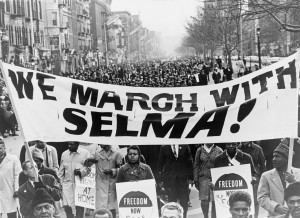
I was already excited to see the film before it came out, but knowing that Jane and Frank Ollendorff would be joining us made the event seem much more significant and exciting. I didn’t ,at the time, know to what capacity Jane was involved with the events, but it was a very intriguing thing to hear about in brief. We met at the AMC Theater in Clayton, and at first I was nervous I had misunderstood Todd, because Jane was much younger than I had anticipated, and no one made any mention about her presence until only moments before we entered the theater when Jane invited me over for dinner.
The film was enlightening and I learned things I had no idea were even matters of issue during the time period. Some of the scenes were shocking and very emotionally powerful, and it was strange to think I was sitting right beside someone who had actually experienced some of it.
After the movie, I followed Todd back to Jane and Frank’s. We got back before them, and he said he was excited to show me a picture of his grandfather. We walked over to the piano in the dining room, and sitting on top with a small clipping of text was a picture of many people crowded around a piano. On further inspection it was clear to see that all these people were singing together, and right at the very center was Coretta Scott, Frank as a young boy, and Todd’s grandfather. Later, Frank explained to me that before Coretta met Dr. King, she worked at Antioch College and lived in the same home as Frank and his father. In this picture they were gathered together singing Christmas carols.
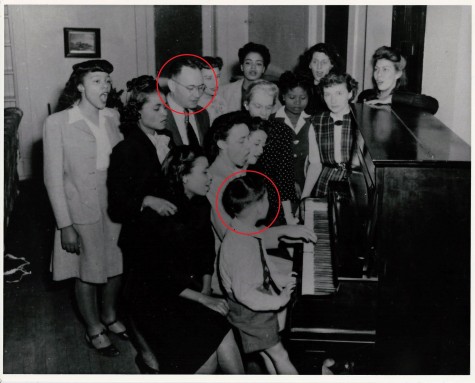
Todd’s father (right) and grandfather (left) join Coretta Scott (center) in singing Christmas carols at Antioch College
When we all sat down to discuss the film and to hear about Jane’s experiences, she began by discussing her early life in just a few hours south of here in Ironville, Missouri. She recalled living up the street from the only African American family who were segregated. When she entered high-school, she was in the first class that wasn’t segregated and she considered herself to be friends with one of the African American students in her class. Her parents’ strict rules against associating with people of color, and an experience at work where she served her African-American friend then received a stern warning from her employer shaped Jane’s outlook on the issue.
When she later married a minister in her early twenties and started a community church in South City, she was moved to answer Dr. King’s call to action after the match at Selma was largely unsuccessful. She and several others took a bus to just outside of Montgomery and joined those who had marched from Selma.
“We were given a good meal at a church on the way. I remember being really tired, but we banded together and really felt moved to support. We did know about the violence and we knew about the struggles and there was a call all around the county. There were some of the student ministers who had already gone down to the South to help with voter registration and to try and help the effort, but one young man had been arrested and at the time that was the scariest thing in the world. I didn’t know all the people on the bus, but there were people from all over the country there to support the Kings. We slept in those tents you saw and as we marched there were banners that read ‘Martin Luther Communist’. The guards that were meant to protect us were standing facing us, armed with their rifles. They wore Confederate flags and all the way to the speech, there were people waving Confederate flags,” Jane recalled.
One of the things I was most interested to hear about was the accuracy of the film. Throughout the night she was asked that same question by many different people at dinner, and I think that’s what made this whole experience so exciting. I had just seen a phenomenal film with a woman who was there for the actual events, and she could confirm that most of the film was authentic to the time and events.
I don’t think I realized the significance of that day aside from the sheer number of people who were all working for the same thing
Later that night, I met another woman named Susan, who was excited to share that she had marched on Washington with King after her friend invited her to ride along. She was moved by the fact that this educated group was lead fully by African Americans and she was graciously invited as a guest for their moment. I asked both what it was like to hear King speak, and while they agreed it was nearly impossible to hear him over the crowds, Susan put it well when she said, “I don’t think I realized the significance of that day aside from the sheer number of people who were all working for the same thing, and were all black. I couldn’t hear over the people and the P.A. system, but I had more of a sense of the passion in his voice than his words. There were other speeches and people singing. And this was just before he won his Nobel Peace Prize,” Susan said.
Between Jane and Susan, who were both motivated to join King’s movements for different reasons, and Frank, who would one day be the first Police Chief in St. Louis to have a department representative of their city’s demographics in University City, I feel honored to have learned what I did and have the conversations I did that night, and it all started with a trip to the movies.

